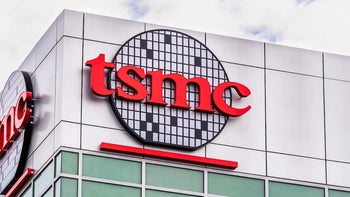TSMC reportedly getting everything lined up for 2nm production in 2025

While TSMC has started risk production of its 3nm process node (N3), the world's largest independent foundry will start mass production at this node sometime next year. And then it will be on to 2nm. According to WFFCtech, TSMC plans on building a second 2nm fabrication facility on a golf course next to Zhonke Park in Taichung.
TSMC executives meet with local government officials in Taichung
As you might imagine, building production facilities for a cutting-edge fab not only costs money, it also takes space. The mayor of Taichung, Shiow-Yen Lu, says that if ground is broken in his city to build a 2nm fab, the cost of the project will be one trillion Taiwan Dollars ($36.2 billion USD). But city officials are concerned about the environmental impact of building a factory in Taichung despite all of the jobs and money that will be flowing into that area.

TSMC CEO Dr. Wei at left and Taichung mayor Shiow-Yen Lu on the right. Image credit Taiching City Government
TSMC CEO Dr. C.C. Wei and other company executives met with the mayor on Friday. Ms. Lu did speak to the media about the number of jobs that the TSMC 2nm fab would bring to her city. At the same time, she suggested the use of renewable energy to handle the electricity needs of the plant.
Media in Taiwan covered the meeting between the TSMC executive and the mayor which was downplayed by TSMC. The latter stated that no plans to build a 2nm production factory in Taichung have been finalized and Dr. Wei's "sit-down" with the mayor was merely a "courtesy" to discuss the foundry's wafer plant that has been operational in Taichung.
Accompanying the CEO was three TSMC vice presidents: Wang Ying-lang (fab operations), Arthur Chuang (facility division), and Jonathan Lee (corporate planning). In another statement, TSMC's CEO said that Taichung was a good choice for a location where TSMC could expand its production capacity. That's due to the city's excellent geographical and climatic conditions.
Local media in Taiwan took a look at the executives that attended the meeting and concluded that the real reason for the get-together had something to do with the building of a second 2nm facility in Taichung. What also made the meeting suspicious in the eyes of the local media is that Dr. Wei had never taken the time before to meet with local government officials in an area where one of its facilities is located.
TSMC's primary 2nm fab will be located in Hsinchu
The fact that Taichung has many hospitals, schools, and malls will help it attract top tech talent if the foundry determines that a second 2nm production facility is needed. The factory possibly planned for Taichung is not the foundry's primary location of its 2nm production; that honor goes to Hsinchu. Not only is Taichung well suited to host a 2nm fab, it also can provide TSMC with accessibility to large amounts of water, one of the most important environmental considerations that TSMC requires.
The primary fab in Hsinchu will use approximately one hundred thousand cubic meters of water per day with less than 75% of that amount coming from the city's own water tanks. Last year drought in Taiwan forced TSMC to have ultra-pure water shipped to its factories. In case you were wondering, it takes 10 gallons of water to make a single chip, and when you consider how many chips a foundry as huge as TSMC turns out, the demand for ultra-pure water is tremendous.
Chips are built in clean rooms to prevent any impurities from contaminating the assembly line. Thus the water used in this process must also be pure and cannot contain any contaminants. Hsinchu officials want TSMC to detail its plan to switch to recycled water at the 2nm facility.
With volume production of 3nm chips expected during the second half of 2022, mass production of 2nm chips is penciled in for 2025. The smaller the process node, the higher the number of transistors that can fit inside a chip. And that is important because the more transistors inside a chip, the more powerful or energy-efficient the chip can be.
Samsung Foundry is using a similar roadmap and is also expected to start volume production of 3nm chips during the second half of 2022.










Things that are NOT allowed: